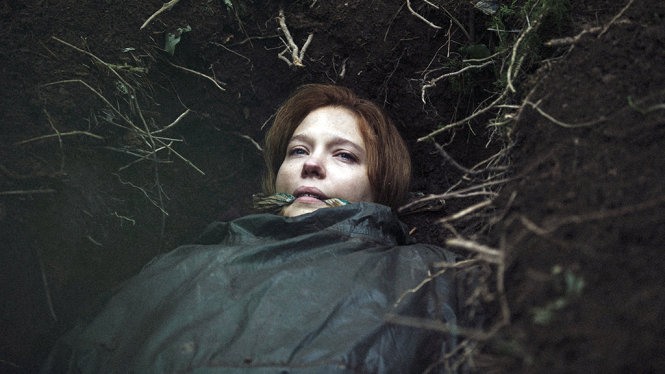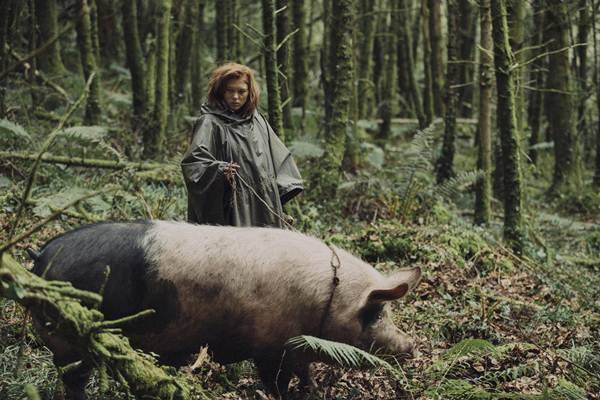The Lobster (2015)

The Lobster is a 2015 absurdist black comedy drama directed by Yorgos Lanthimos, co-written with Efthimis Filippou. The film stars Colin Farrell, Rachel Weisz, and a talented ensemble cast including Jessica Barden, Olivia Colman, and John C. Reilly. Set in a dystopian society where single people are given 45 days to find a romantic partner or face being transformed into an animal of their choice, The Lobster blends surrealism, dark humor, and social critique to explore the pressures and absurdities of modern relationships.
The story follows David (Colin Farrell), a man who checks into a hotel that enforces these harsh rules. In this world, the government dictates that being single is unacceptable, and individuals must find a partner, or else they face the grim fate of being turned into an animal. David chooses a lobster as his future form and enters the hotel to participate in the bizarre dating rituals. As he navigates this strange world, David encounters various eccentric characters and struggles with his feelings of isolation, love, and conformity.
One of the most striking elements of The Lobster is its absurd, deadpan tone. The film’s humor arises from the awkwardness of the characters’ interactions and the absurdity of their situation. People in the hotel go through formalized, often comical “dating” activities, such as playing ping-pong or pretending to be animalistic, all in an effort to find a partner. The characters speak in a detached, almost robotic manner, which adds to the overall surreal and dystopian atmosphere. The film’s dark humor cleverly critiques societal norms and the pressure to conform to conventional ideas of love and relationships.
In addition to its comedic elements, The Lobster also explores deep philosophical and existential questions. It critiques the idea of love as something that can be forced or reduced to a set of rules and regulations. In this world, relationships are not built on mutual understanding or genuine connection, but on arbitrary characteristics or superficial traits. The film challenges the audience to think about the expectations society places on individuals to be in romantic relationships, often at the cost of personal happiness or individuality.

The performances in The Lobster are equally striking. Colin Farrell delivers a nuanced portrayal of David, a man who is awkward, vulnerable, and deeply conflicted about the societal pressures he faces. Rachel Weisz, who plays a woman David meets in the “loners” society outside the hotel, brings depth and tenderness to her character. The supporting cast, including Olivia Colman and John C. Reilly, add further complexity and humor to the story. Their performances highlight the film’s unique ability to blend dark comedy with moments of emotional depth.

Visually, The Lobster stands out with its stark and minimalist aesthetic. The film’s muted color palette, with its gray skies and institutional settings, contributes to the cold and oppressive atmosphere of the world. Lanthimos uses long takes and symmetrical compositions to emphasize the mechanical nature of the characters’ lives. The sterile environments of the hotel and the bleak landscape of the “loners” society further reinforce the sense of confinement and lack of freedom that the characters experience.

In conclusion, The Lobster is a thought-provoking and unconventional film that challenges the audience’s perceptions of love, relationships, and societal expectations. With its absurd humor, surreal world-building, and philosophical depth, the film stands out as a unique cinematic experience. Yorgos Lanthimos’s direction and the strong performances of the cast make The Lobster a darkly humorous yet deeply poignant exploration of modern life and the absurdity of human relationships.










